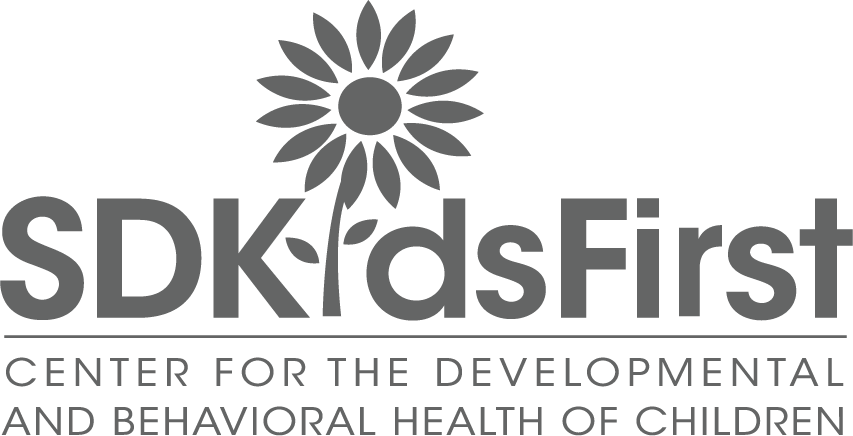Attention Deficit Hyperactivity Disorder, or ADHD, is a common condition which manifests prior to the age of 7. It is neurologically-based in that studies suggest ADHD involves a deficiency in the part of the brain that helps us to sustain focus, concentrate, filter-out extraneous information, organize, plan, understand others’ actions, and inhibit impulses. Although there are very effective treatments for ADHD, there is currently no established ‘test’ which can conclusively diagnose ADHD. To complicate matters further, some researchers cite that there are as many as 30 (or more!) other medical, psychiatric, or psychosocial conditions that could manifest with similar symptoms to ADHD including learning disorders/differences, developmental delays, depression, anxiety, autism spectrum disorder, or contextual variables (e.g. aspects of school, home, family life,etc.) As a result, the diagnosis of ADHD requires a very comprehensive approach which not only seeks to establish whether or not the behaviors consistent with ADHD are present, but that these behaviors are truly due to ADHD. Below are the most common questions asked by parents and educators when considering obtaining an evaluation for their child:
1. What is ADHD? How is it defined? What is the difference between ADHD and ADD?
There are specific diagnostic criteria established in the Diagnostic and Statistical Manual of the American Psychiatric Association (DSM-IV, 1994) which must be met in order to diagnose a child with ADHD. There are 9 symptoms listed in the ‘Inattentive Domain’, and 9 symptoms listed in the ‘Hyperactive/Impulsive Domain’. In the DSM-IV manual, there are three different types of ADHD: (1) “ADHD, Combined Type” (the most common type) in which a child exhibits six or more symptoms in each category (Inattention and Hyperactivity/Impulsivity). (2) “ADHD, Predominantly Inattentive Type” in which the child exhibits six or more symptoms of Inattention but fewer than six symptoms of Hyperactivity/Impulsivity (this type is often colloquially referred to as ADD since it has minimal ‘Hyperactivity’ in its clinical presentation); and (3) “ADHD, Predominantly Hyperactive-Impulsive Type” in which the child exhibits six or more symptoms of Hyperactivity/Impulsivity, but fewer than six symptoms of inattention. In all three types, the behavioral symptoms must be observed in two or more settings prior to the age of 7.
2. What are some signs and symptoms of ADHD?
Some common signs and symptoms of ADHD include:
- difficulty focusing or sustaining attention,
- starting but not finishing tasks,
- daydreaming,
- heightened distractibility,
- frequently losing things or forgetting things,
- avoiding homework,
- displaying increased motor activity,
- blurting out statements,
- interrupting/intruding on others,
- having difficulty awaiting turn,
- fidgeting or squirming,
- leaving his/her seat when others are seated.
3. How is ADHD diagnosed? What is involved when my child is assessed for ADHD?
A thorough and comprehensive assessment of ADHD may incorporate the following components:
- A thorough review of developmental, academic, and behavioral history.
- Standardized assessments which may include: behavior scales*, adaptive behavior measures, social inventories, cognitive testing, academic testing, and social/emotional clinical assessment.
- Clinical interview with child, parent and educator(s).
- School observations or review of school records/observations.
*It is important to remember that diagnosis of ADHD is complex, and one should not rely on a symptom checklist or behavioral scale alone to diagnose ADHD. Checklists and scales are helpful tools for gathering information, but only within the context of a thorough clinical assessment.
4. What treatments are available for ADHD?
The good news is that there are several very effective treatments available to children with ADHD. Of course, treatment planning should always be discussed in detail with your child’s provider in order to set appropriate goals and tailor approaches to maximize your child’s progress. Treatment for children with ADHD may include:
- Medication: Several psychostimulants have been proven to be very effective in treating the core symptoms of ADHD. Consult with your pediatrician or child psychiatrist to discuss these options further.
- Behavioral Therapy: Behavioral Therapy utilizes behavioral techniques and strategies in order to elicit more positive behaviors at home and in the classroom. Children and parents work together to decrease disruptive behaviors, facilitate communication and improve concentration and task completion.
- Educational Planning: Once a diagnosis is established, behavioral plans, 504 or IEP plans may be designed and implemented to foster academic success in the classroom.
- Parent Coaching and Support: Parenting a child with ADHD requires the use of a specialized skill set. It also requires a significant amount of patience and persistence. Learning tools to foster growth and positive interactions at home and obtaining support from other parents are an important part of a comprehensive treatment plan.
- Social skills training: Children with ADHD often have trouble reading and interpreting social cues and/or making and maintaining friendships. Therapies aimed at improving social awareness, and improving cooperation and friendship building are important to allow them to experience social success.
- Emotional Regulation skills training: Children with ADHD often demonstrate low frustration tolerance, and can have difficulty regulating negative emotions. Emotional regulation skills training focuses on teaching and reinforcing the acquisition of healthy coping strategies to improve the child’s ability to navigate frustration, anxiety, and anger appropriately.
- Individual Therapy/Counseling: Children with ADHD often struggle with low self-confidence, low self-esteem, and/or symptoms of anxiety/depression. One-on-one sessions with a trained professional can help children overcome these difficulties, and recognize their many strengths and positive qualities.
5. Are there consequences to undiagnosed or untreated ADHD?
A child who does not receive treatment for ADHD may fall behind or ‘underperform’ in school, and continue having trouble with friendships. Family life may also be negatively impacted. ADHD can lead to compromised or stressful relationships within the family, or at school with peers. Children can also develop a sense of helplessness/hopelessness, and can be more predisposed to develop anxiety or depression. In the long-term, research has revealed that compared with the general population, individuals with untreated ADHD have higher rates of divorce, job loss, cigarette and drug addition, and more driving infractions (American Academy of Child and Adolescent Psychiatry, 2010)





